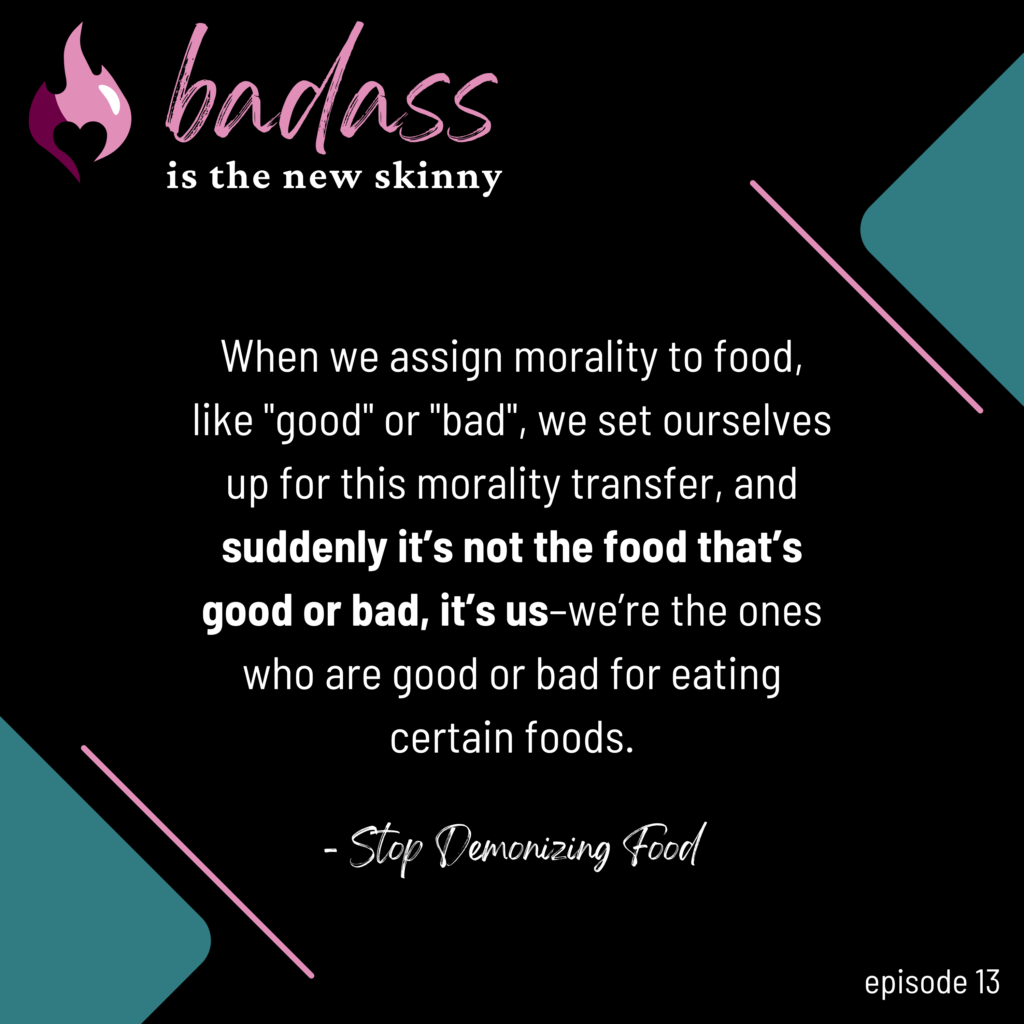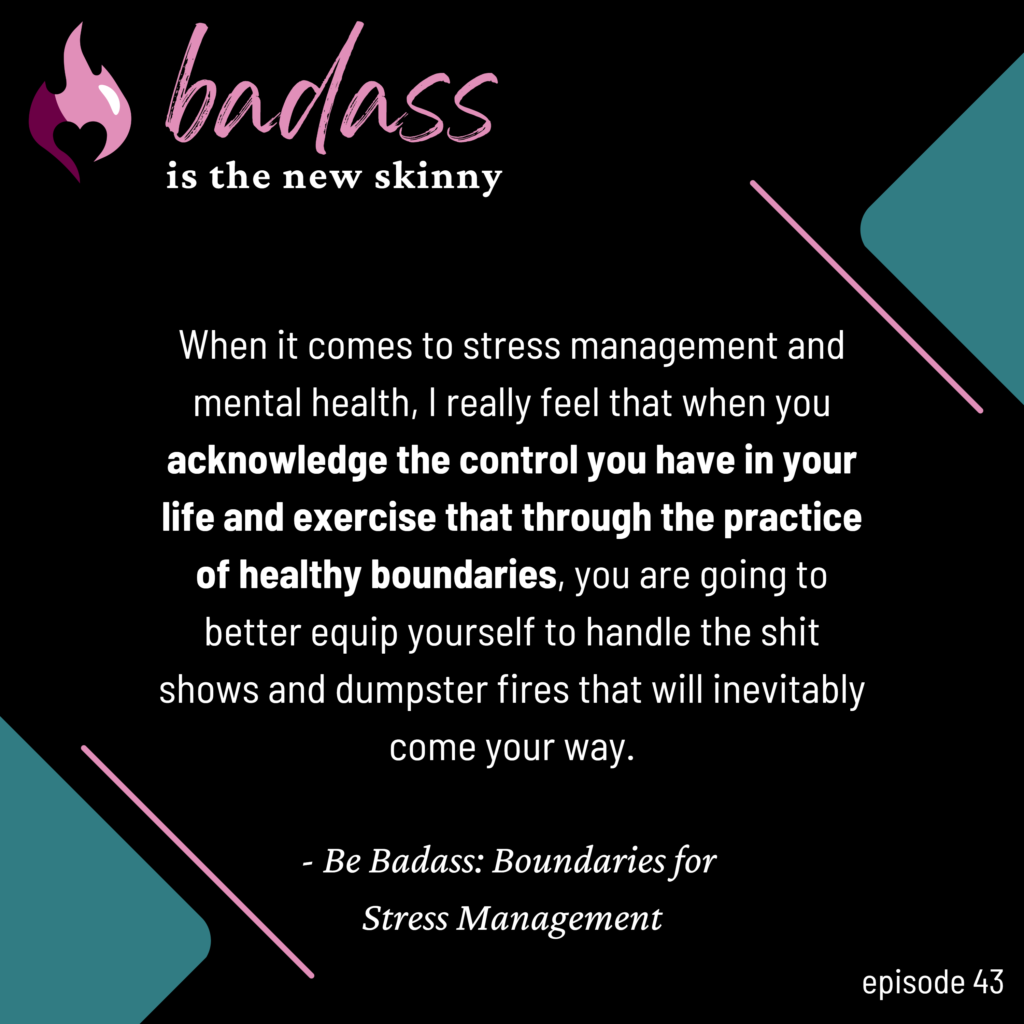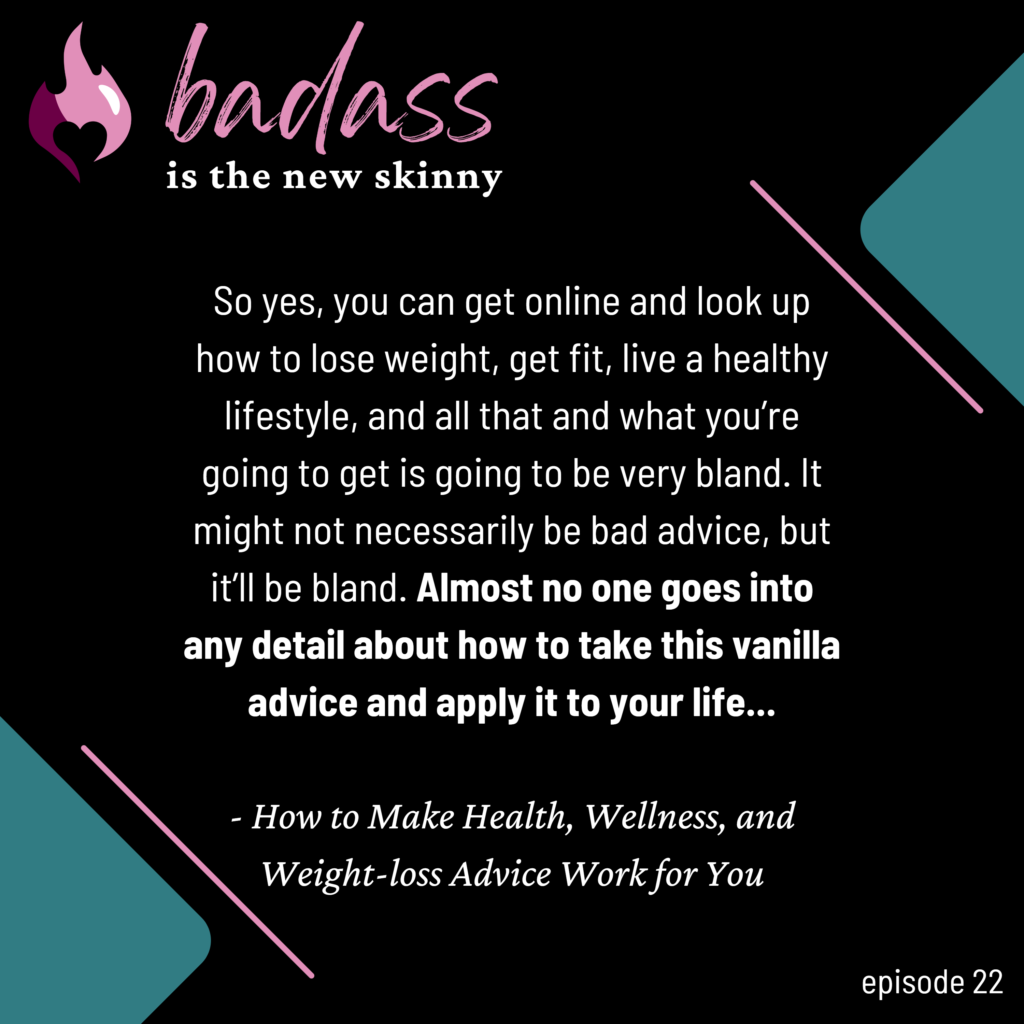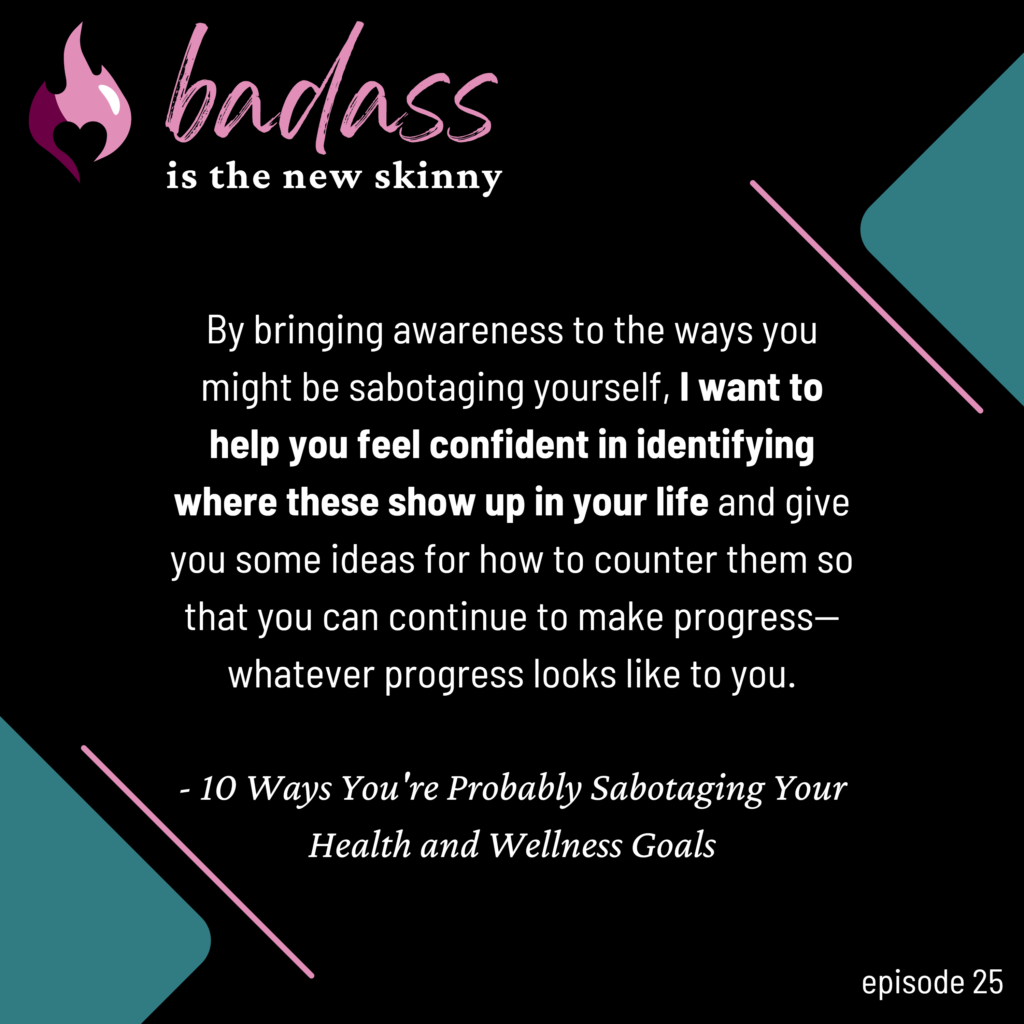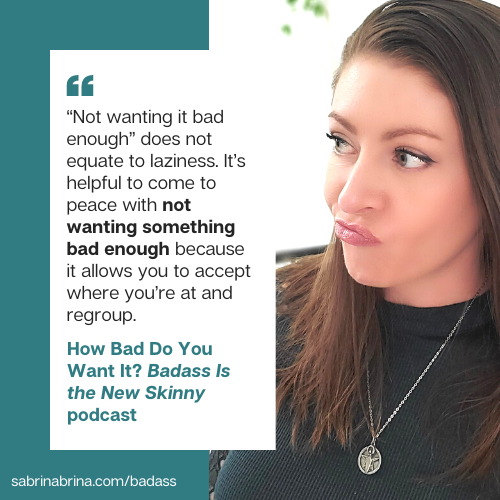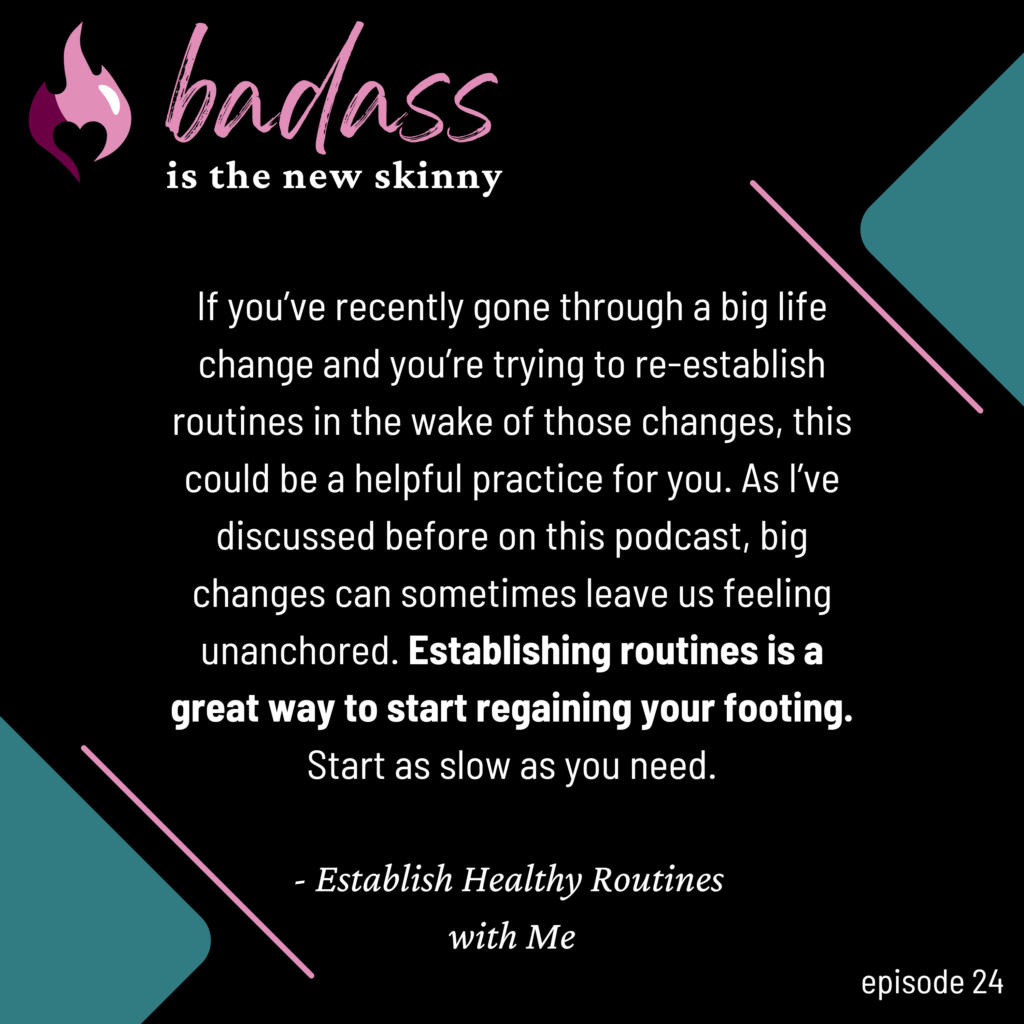055 | Why People Overeat
Why People Overeat (Overcoming Overeating Is Friggin’ Hard)
Today, we’re talking about why people overeat. Let me tell you a story – I want to talk about something that my boyfriend said to our puppy. I know that sounds strange, but hear me out.
I’m sitting at the dining table, which is my makeshift workstation, and he’s making a cup of coffee. Libby, who’s almost one now, is kind of bouncing back and forth between us for attention and snacks. I’m eating a cookie that Boyfriend had brought home for me the night before, and Libby is all up in my face wanting bits of the cookie.
Then, Boyfriend says, “No Libs, you can’t eat that, it’ll make you sick. And you’ll keep eating it even though it’ll make you sick.”
I sat there blinking as I ate the last bite of my cookie and his coffee pot began to brew. The joke with his coffee is that it’s a sugar delivery system. Inevitably, he always ends up feeling like crap after he drinks it. And yet, he has a cup of coffee roughly four-ish times a week.
My alter ego: Cookie Monster
If you’ve been around the podcast for a while, you probably know that I have a cookie problem. Don’t believe me? Go check out my Instagram for the Halloween pictures, where I dressed up as Cookie Monster. And then I did it again for Thanksgiving. True story.
As I sat there and finished my cookie, I just kept thinking about what he said:
“You can’t eat that, it’ll make you sick. And you’ll keep eating it, even though it’ll make you sick.”
We’re really no better than my puppy wanting a piece of my cookie. It also made me think of my family dog, Baloo, that we had when I was growing up. We used to joke that his mindset was: “Anything that falls on the floor is food, and if it’s not, that’s OK. I can throw it up later.”
Making poor life choices
All of this is really to lead into a discussion about how many of us eat and drink things—knowing that it makes us feel like absolute garbage—and yet we do it anyway.
I’m especially guilty of this. I’m a sucker for tasty food and somehow I ended up part of the clean-plate club. No idea why. So it’s rare for me to decide, hmm, I’m full, and then stop eating.
No no. No, no, no, no, no.
It’s more like: Wow, this is really good (or, let’s be honest, this food is kind of bland and only so-so), and even though I was full about 4 bites ago, I’m going to keep eating the whole other half of this meal until I feel sick and bloated and who gives a fuck if I wake up in the middle of the night with a stomach ache that hangs on until I have to get up in the morning and then I feel terrible and my clothes don’t fit right and I’m just in a peachy mood to get in front of people and offer any kind of advice or guidance for how to live a healthy life.
Nothing quite like showing up to your day job feeling like a hypocrite and an imposter.
Why are we like this?
So why do we do this? Why do we eat, and eat, and eat, even though we’re not hungry anymore? Especially when it’s food that, if we eat it, we’ll feel like crap?
I have some theories. One, for me at least, is that I’m a middle child and my sisters were always taking things from me. So I learned to be a little extra protective of my stuff and eat real fast before they could get to it. Especially if there was even the slightest chance I’d want seconds. So in this case, I’ll blame it on my survival instincts.
Two, is instant gratification. Why worry about the painful consequences when we can indulge in the pleasure now?
Three, food scientists are evil masterminds who have figured out a way for us to sabotage ourselves and work against our own best interest.
This makes me think of the Supernatural episode in season seven. (Which, let’s be honest, was kind of the worst season of this otherwise awesome series). The episode about the “turducken slammer” in which these burgers are engineered to keep people eating. And eating. And eating… and to care about nothing else. It’s a whole thing. I won’t get into it more here, but that’s what all of this makes me think of.
Now, all of this is just my own conjecture, right? So it got me thinking—why do we actually do this? Why do we eat beyond the point of fullness or choose foods that we know make us feel ultra shitty? Then, why do we do it over, and over, and over again?
Not sounding familiar?
For any of you out there thinking to yourselves, “I don’t do that, do people do that? Is that a thing? Not me. I eat until I’m full and then I stop. And if it makes me feel sick I don’t eat it again.”
Well…
I was going to say you can fuck right off, but that’d be rude. So instead I’ll say, “good for you and this podcast episode isn’t for you.”
I’m mostly joking of course. Seriously, if this isn’t something that you experience or struggle with, you might not get much out of this episode. BUT! You’re welcome to hang around and give yourself a pat on the back for your success in this area. I say that sincerely, because it’s definitely a tough one to overcome!
Overeating, put simply
I’ll be honest, I started researching this topic and my first thought was, “Well, duh… of course.”
In my initial list of assumptions, there are so many things that I missed. Ultimately, I overcomplicated it and danced around the obvious.
Put simply: Overeating is eating past the point of fullness. And for a lot of us—myself included—overeating is the result of eating too quickly. So quickly, in fact, that we don’t give our bodies a chance to recognize that we’re full. That’s why mindful eating and eating slowly are among the main tips for overcoming overeating.
I’m going to try to rein in this topic a little bit. This can go in so many different directions and get really confusing really quickly. To circle back, the main question and the primary thing that piqued my interest is why do people overeat? And/or, why do they eat even when something doesn’t taste particularly good or we’re not especially hungry?
To tackle this topic, I’m going to briefly break down some reasons for why we overeat. As I go through them, I encourage you to think about what might ring true for you and how this knowledge and self-awareness can help you make better choices going forward. I’ll share my self-reflections at the end.
Most of what I’ll talk about is supported by information that I found from the Cleveland Clinic’s website. You can check out more, here.
OK, so some reasons why people overeat:
First, and this is a big one for me: emotional eating.
Think about your eating behaviors, maybe over the last two to four days. When did you find yourself mindlessly eating or overeating the most? If you’re an emotional eater, it might’ve been when you were sad, stressed, tired, frustrated, or otherwise emotionally amped up. In those instances, people are susceptible to overeating because when we eat food, it releases endorphins, which help us feel better. I feel like the poster child for this lately because life has been an out of control dumpster fire, and I’ve made cookies their own food group. Charming, I know.
Next: eating preferred foods and processed foods.
I’m grouping these together because for many of us, they’re one and the same. Highly processed foods are manufactured to taste really good and keep you eating. By nature, it’s easier to overeat when we’re eating foods we enjoy.
This isn’t to say you can’t overeat healthy foods. For instance, I’m not allowed to sit down with a bag of cherries. I have to portion some out into a bowl, or I will just go ham. Now, for the sake of clarity, I say, “I’m not allowed to” as more of a figure of speech than to be taken literally. I’m a goddamn adult and I’m allowed to eat what I want. I tell myself I’m not allowed because it’s my playful way of reminding myself that life will be regrets if I overeat.
Long story, short: one of the reasons why people overeat is because they’re eating food they really like, whether it’s processed or not. But generally speaking, it’s especially common with highly processed foods because they’re designed to keep you eating.
Another couple reasons: social situations and large portion sizes
When you think about the different ways we socialize, you’ll find that most of the time it’s based around food. Lunches, dinners, happy hours, celebrations, and so on. And I think at this point we’re all very familiar with how overly large the portion sizes can be when we dine out at a restaurant. It’s out of control. So when you combine the large portion sizes with a lot of the feelings and emotions that go along with socializing, it’s not hard to understand how these things can lead to overeating.
And of course these causes of overeating don’t need to be paired up to be true, but the two go hand-in-hand quite a bit. In fact, it’s only been in the last couple of years that I learned how to spend time with friends without it revolving around food. Not to say that it never does—I still enjoy going out to eat and socializing and all that—but I’ve gotten better at finding other ways to socialize.
However, to play my own devil’s advocate, a lot of times, those social gatherings still revolve around snacks and food, especially when it’s a game night situation. This is something I’ve caught on to at least and I’ve been more mindful about it. For example, Boyfriend and I will still buy chips, cookies, and such, but we’ll also buy fruit and/or veggie trays to have some healthier snacking options.
A brief mention for medication and medical conditions
Some medications can make you feel hungry more often or interrupt your body’s natural signals that you’re full, and some medical conditions can also contribute to overeating. If you think this is something that might be an issue for you, I always recommend talking to your doctor, and don’t stop taking medications without first talking to your doctor.
If this is something that you’re particularly concerned about, the only thing I really want to say is that you have the right as a patient to ask about alternatives. Sometimes there will be other options, and sometimes not. I’m not here to say one way or the other, but I do want to encourage you to ask questions and feel empowered to be active in the decision-making when it comes to your health. Create a partnership with your doctor so that you can advocate together for the best solutions for you.
A few final considerations
Finally, there’s a few other things that I’m not really going to go into but I just want to acknowledge that they can contribute to overeating, and that can include things like social and cultural expectations, time of day, eating while distracted, energy output—or being more active—and disordered eating or eating disorders. All of these things can be bigger conversations, and hopefully it goes without saying that the things I’ve talked about here are not the be-all-end-all.
To sum up: It’s complicated
Like most things in life, the reasons for why people overeat are complex and can be deeply personal. That doesn’t make it any less frustrating, especially when you’re feeling like overeating tendencies are controlling you or are stronger than you. Feeling unable to overcome overeating can be super frustrating, especially when you have a clear understanding for your health goals and what it takes to get there.
I’ve talked on this podcast before about how if you really want something, you can do it, and if you can’t do it, then maybe you don’t really want it. I want to take this opportunity to clarify something in case I’ve given the wrong impression.
You can “want something bad enough” and still “fail”… and it’s not necessarily your fault
For the most part, I still strongly believe that if you really want something bad enough, you’ll make the necessary changes to get it. A lot of us get in our own way because we are ambivalent or apathetic about a change. We say we want something, but we’re not willing to make the changes to actually achieve what we want to achieve.
And then there are a lot of things that are deeply ingrained or maybe are beyond our immediate control. Sometimes our barriers are bigger than just how bad we want something, and I feel I’ve done a shitty job at highlighting that side of things and make some of these struggles sound easier than they might be.
I might need to do a separate podcast on this to really give it the recognition it deserves, but I just wanted to say that if you’re struggling to overcome overeating and you feel like you’ve tried everything and nothing has worked, I understand it’s more complicated that wanting it bad enough. Sometimes, as I’ve talked about, overeating can be circumstantial—like how we’re socializing, the portion sizes we choose, how quickly we eat, and how we manage difficult emotions. And sometimes, it’s more complicated than that because there are medical issues, trauma, or mental health issues that—if not addressed—can make overcoming overeating nearly impossible.
I’m not a mental health professional, so I’m not going to try to speak from that perspective, but I’ll speak from a personal perspective.
Story time
I overeat on a regular basis. I’ve been subjected to many comments—playful and otherwise—about how much I can eat. Maybe someday I’ll talk more about that, but for now I just mention it because I’m very aware of my tendency to overeat. For me, the biggest culprits are pretty much all of the things I’ve mentioned: eating too fast, emotional eating, social situations, large portion sizes, and eating foods I really like, especially highly processed foods. (I’m looking at you Oreos…)
These are things that I have some control over. I can control what snacks I bring to game night, and how I portion them out. I have control over how quickly I eat, and what portion sizes I serve myself. And, I can control, to an extent, how I manage my emotions.
But there are things below the surface that are harder and will take some more exploration. I’ve mentioned before that my mom struggled with anorexia nearly all her life. She tried her best, but she was hyper-focused on weight and size, though she tried to associate it with things like too much weight is not good for your knees and skeletal structure, masking the vanity motivations.
Bad habits start young
When I was in high school, I think it was my freshman year, maybe my sophomore year, my mom supported seriously disordered eating habits that, in retrospect, I’m shocked she allowed and even contributed to. I’m 5’7” and had gotten to be pretty tall, pretty early compared to my classmates. I was also a little overweight. Not a lot, but enough for me to feel uncomfortable and self-conscious about it in the day and age of low-rise jeans and wannabe crop tops. I have a long torso, and it was hard to keep it covered with what was in style.
Anyway, in this vulnerable stage I was in, I decided I was going to go on a diet. 1,200 calories, max. Sound familiar?
One of the ways I achieved that is that for lunch I would have a diet soda. That was it. In the morning, on my way out the door to go to school, I would get a dollar bill from my mom to get a soda from the vending machine. She happily handed over the dollar bill, and encouraged this for however long it lasted.
Now, to be fair, it’s possible that she also encouraged me to have a big, healthy breakfast or dinner or whatever—supporting healthier habits in other ways. But if she did, I don’t remember it. From her perspective, I was trying to prevent getting fat, and she was in support of that, even if she would never say as much.
Moral of the story
I tell this story for a lot of reasons, but primarily because I want to demonstrate how we have experiences in our lives that can make something like not overeating a lot more complicated than “just eat mindfully.” I want to acknowledge that when we try to overcome these challenges and address these habits that we are often up against experiences and influences that we may not even fully recognize or be aware of.
So if you’re trying to overcome overeating, or if you’re trying to make other changes that, quote-unquote “should be easy” and it’s not, focus instead on doing your best and giving yourself some grace. In fact, every time you find yourself criticizing your actions or in that negative mindset, acknowledge a recent win you’ve had, even if that win is as simple as you recognized the reason you over-ate.
This shit’s hard, and it’s more complex than we often give it credit for. And I’m just as guilty for contributing to this rhetoric.
OK, I’m going to wrap it up there because I ended up on a tangent, but I feel that it was an important one, and there’s more to dive into, but for now, I hope this was helpful and even if you don’t take any action based on what I talked about today, maybe it will at least give you more to think about and give you a reason to be more gentle with yourself. I think we could all use a little more of that.
Join the conversation!
I’d love to hear your thoughts on this topic. Hit me up on Instagram or the Facebook group and let me know which elements of today’s conversation resonated with you.
- Facebook group: Badass Is the New Skinny
- Instagram: @badassisthenewskinny
- Email: hello@sabrinabrina.com
- The original blog where it all began: badassisthenewskinny.com

